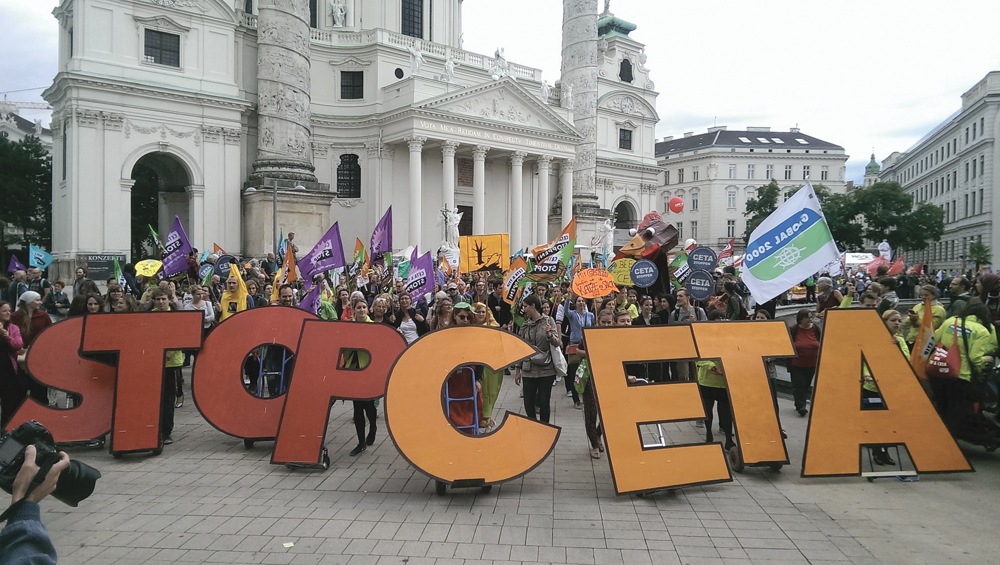Since Donald Trump took office as president of the United States, a shocking list of executive orders is making people around the world uneasy about unpredictable days ahead.
Democracy and civil liberties are in peril. It is reasonable for Canadian and European officials to respond with concern to Trump’s aberrations. But it appears that, fearing the uncertainty, they have rushed to ratify CETA.
The deal offers the language of prosperity and progress, but in reality, accelerates income inequality and grassroots unrest. Both Canadian and European politicians fail to understand that decades of free trade-like policies have deprived too many U.S. citizens of their economic sustenance and thereby helped to elect Donald Trump.
Read Also

Trade uncertainty is back on the Canadian national menu
Even if CUSMA-compliant goods remain exempt from Trump’s new tariffs for now, trade risk for farmers has not disappeared, Sylvain Charlebois warns.
- Read more: EU trade deal moves forward but questions remain
- Read more: From cheese to maple syrup, what’s in EU-Canada trade deal?
The rise of the extreme right in Europe (as well as in Canada) is also fuelled by the hollowing out of the rural economy, disenfranchising the people and communities that depend upon it. CETA is a Trojan Horse that, once in effect, will further quash social, economic and environmental protection in exchange for the enrichment of offshore investors.
The European Union has ratified most of CETA’s text, but individual states must each ratify the Investor State Dispute Settlement (ISDS) measures of CETA. Many national governments now face a rapidly growing democratic movement that opposes the economic and social disempowerment of their communities that CETA entails.
We can only hope that as country-by-country European opposition grows it will be a common-sense analysis and not the fear-based extreme right that prevails. We now depend on the politicians in EU member state Parliaments to realize that democracy and quality of life will be further endangered if they ratify CETA’s ISDS measures.
Farmers in Europe understand that CETA is another threat to their livelihood. In Canada, some farmers will see immediate income pressures as CETA comes into effect; others will find out over time that their newly offered “market opportunity” really means producing and selling a bit more, but for a lower price.
Signing CETA raises false expectations, and in the end it will only exacerbate income disparity and disenfranchise people at the grassroots.















